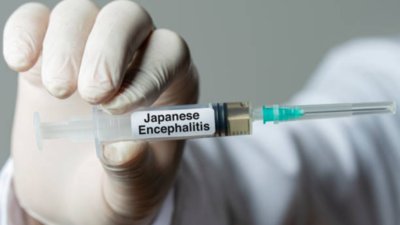
At a time when the nation’s capital is struggling with air pollution, another fear has come to the fore. The national capital has reported an “isolated” case of Japanese encephalitis.
The case has been identified as a 72-year-old man from west Delhi who was admitted to the All India Institute of Medical Sciences on November 3 after chest pain. The patient had diabetes, coronary heart disease, bilateral lower limb weakness and bowel and bladder incontinence, an official source told news agency PTI.
He was discharged on November 15.
Japanese encephalitis is a viral infection caused by the Japanese encephalitis virus, which is primarily transmitted through mosquito bites, especially the Culex species. It affects the brain, leading to symptoms such as fever, headache, vomiting and neurological signs such as confusion, seizures and paralysis.
The disease is most common in rural areas of Asia, especially during the monsoon season when mosquitoes breed. According to data from the Integrated Disease Surveillance Programme, 1,548 cases of Japanese encephalitis were reported in 2024 from 24 states and union territories, with 925 cases in Assam alone.
While many infected people may show mild or no symptoms, severe cases can lead to permanent brain damage or death.
Vaccination is the most effective prevention strategy, especially in endemic regions. Early diagnosis and supportive care can help manage symptoms, but there is no specific antiviral treatment for JE. Two doses of the vaccine have been part of the Universal Immunization Program since 2013, as recommended by the central government. Japanese encephalitis vaccine for adults has been introduced in high-burden states, sources said.
6 effective tips that will increase endurance
All public health measures have been taken as per National Center for Communicable Disease Control (NCVBDC) guidelines, sources said, adding that there was no cause for concern.
There is no specific treatment for Japanese encephalitis and the virus is not transmitted from person to person, the source said.










